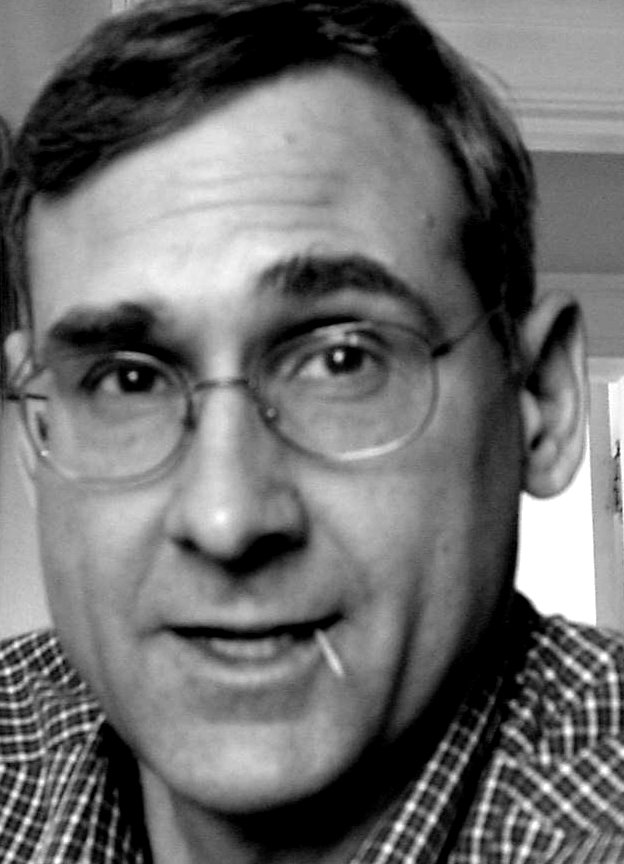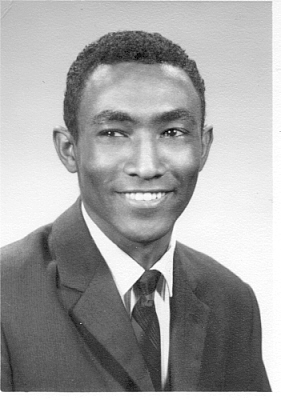Not Eudora
 By Harry Welty
By Harry Welty
Published May 26, 2005

Bedru Beshir Mohammed Desta Beshir 1948-?
Bedru
There is a story about Bedru that I would tell if I knew for certain that he was
dead. But Eritreans are a proud people and should my telling of the tale ever
come to his attention I could not be sure that he would forgive me. He held fast
to one grudge back in 1968 the year he lived with my family. A teacher's
innocent remark which made a classroom burst out laughing burned in Bedru's
heart until the end of the school year. Mr. Wilker, one of my favorite teachers,
was crushed at year's end to receive Bedru's angry letter accusing him of
racism.
Years later when I tried to learn my old roommate's fate I discovered that my
Mother had thrown out all the letters he had sent my parents after his return to
Ethiopia. They made her feel guilty as though our family had abandoned him. We
did. This was the last thing I could have expected when our local AFS Program
(American Field Service) announced that no families had volunteered yet to host
the next year's male foreign exchange student.
I don't know what possessed me to ask my parents if they would be willing to be
hosts. I was dumbfounded when we filled out the application. When my Mother
expressed reservations about answering "yes" to the question about our
willingness to host a student from a different race the rest of us shamed her
into going along. Not long afterwards we were informed that our student would be
from Ethiopia. He would be an African. Not only that, he was also a Muslim.
Never in anyone's memory had Mankato High School enrolled a black student or for
that matter a Muslim.
We picked Bedru up in the Twin Cities shortly before school started and peppered
him with questions on the drive home that he could not answer. However well he
could read English he could barely speak it. It would take a few months before
he was fluent enough to get by and it was probably during this time that he
concluded Mr. Wilker had mocked him in front of his classmates.
Bedru was smothered with a lot more "Minnesota Nice" than racism in
Mankato. I once saw an acquaintance mouth "Black Boy" as he stared at Bedru in a
crowded hallway but I was the only one who noticed. Most Mankato kids were
simply curious about our exotic guest. We didn't have any snow that year (if you
can believe that!) but a gang of sophomores took him snowmobiling on a frozen
lake. Poor Bedru only wore leather street shoes on that expedition and got very
cold toes. It was another escapade, this time with some of Bedru's fellow
seniors, that I can't bring myself to write about. But even here juvenile
curiosity seems to have played more of a role than anything mean-spirited.
While racism was not an overwhelming factor in his stay it was a factor. Bedru's
attraction to one of the cheerleaders was awkward. She reluctantly agreed to go
to a movie with him even though she had a steady boy friend. She didn't want
Bedru to think she was a racist. This was the kind of racism we encountered; the
kind where people bent over backward to prove they weren't racists. To her
credit Pam was probably the first white girl to "date" a black man publicly in
Southern Minnesota during an era when a dozen states would have jailed them for
breaking the law. However, there were limits. When he asked her if she wanted to
kiss him she declined. That would have been disloyal to her boyfriend. Bedru was
a little put out after the date probably because he had gotten a lot of his
ideas about western women from characters in the James Bond movies he'd seen
back in Ethiopia, characters like Pussy Galore.
Although my family had placed an arrow facing Mecca on the floor of our bedroom
Bedru told us that the Prophet excused traveling Muslims from praying while in
foreign lands. I got the impression that Bedru felt he could store up his
neglected prayers and fulfill them all upon his return home. We had one close
call over his eating pork during one school lunch but the cooks assured us that
the hot dog he'd consumed had been made with beef. Frankly, I don't think
he missed his religious duties any more than most kids miss attending Sunday
school.
Despite nuisances like frozen toes and mayonnaise Bedru was probably more at
ease in Minnesota than he had ever been in Eritrea. He relished our secular
freedom. His ambition was simple and universal. He wanted to attend college and
make a good life. He hinted strongly that he would have liked to stay in America
to attend college. This hope greatly troubled my parents.
Had he been allowed to stay my parents would have felt obligated to host him for
another four years but that's not what they had signed up for. AFS rules spared
them this worry. Owing to the reluctance of foreign nations to lose their most
talented students in a "brain drain," AFS students were required to return home
when their school year ended. My father, a lawyer, held firmly to this part of
Bedru's contract. No doubt the INS would have backed him up.
Whatever fate awaited Bedru back home in 1968 it didn't seem a whole lot worse
than what was happening in Vietnam War plagued America. In April Martin Luther
King was assassinated and riots broke out in dozens of our largest cities.
Being an African this calamity did not affect Bedru the same way it affected
black Americans. Having grown up in Africa with nothing but Africans around him
he had not been made to feel inferior to white people. But having been raised in
an authoritarian colony Bedru did identify with our nation's Democratic
evangelism. President Kennedy's Peace Corps program had sent several dozen
American volunteers to Bedru's hometown and he greatly admired the martyred
President. When Kennedy's younger brother, Robert, began his charge for the
White House Bedru followed his campaign even more avidly than my politics
obsessed family. The rest of us went to bed the moment Kennedy's victory in the
California primary was announced. Bedru stayed glued to the television. He turned the
lights out and went to bed quietly that evening without waking us with the news
that he had just seen Bobby Kennedy's murder. He returned to Africa a few days
later.
Notwithstanding these horrors Bedru's visit to America gave him a glimpse into a
world of possibilities. Sadly, his Minnesota adventure caused him to forfeit his
opportunities back in Ethiopia.
Mussolini's conquest of Ethiopia in 1936 was launched from Eritrea an Italian
colony on the Red Sea. After the Second World War the UN awarded the "protectorate"
of Eritrea to Ethiopia thus giving landlocked Ethiopia a seacoast and a large
Islamic minority. Ethiopia was an ancient Christian kingdom. From the moment of
their annexation Eritreans set out to gain their independence.
While in America Bedru was safe from the conflict. He had studied five languages
and fully intended to attend the University in Addis Ababa. But while Bedru
learned spoken English in the United States his facility with Ethiopia's
national language, Amharic, withered. When he took the entrance examinations
back home he failed Amharic. His letters to us complained bitterly that less
deserving students could gain admittance by bribing government officials.
The day Bedru arrived in Minnesota I had asked him eagerly about his wonderful
emperor, Haile Selassie, so famous in the West for his brave but futile stand
against Mussolini's invasion. Before the year was over I came to realize that
our "hero" was Bedru's oppressor. After taking command of English he remained
circumspect about Selassie. There was no telling what kind of dossier Ethiopian
agents might be keeping on Bedru, one of their own "foreign" foreign students.
Long after our last letter from Bedru I found a slip of paper with some notes
Bedru had jotted down. Some of the notes were written in Triginian his native
tongue but he had written down his options in English. His first option was
attending the University which of course had not panned out. His second option
was to find a job which he was eventually to do. His third option was to join
the EPLF. The EPLF was the Eritrean People's Liberation Front. Next to this
option Bedru had written the names of five Eritrean friends.
Although the letters to my parents are lost I still have four letters that Bedru
sent to me. I'm embarrassed to admit that I didn't write back to him very often.
I was too busy enjoying all the opportunities that he was denied. The last
letter he sent my parents was mailed in 1972 and it was the one I was
specifically looking for. It was oddly vague and read as though he was trying to
get it past censors. Since his written English was already labored this letter
was very cryptic indeed. He told us that he was in a dark place by himself with
only a small friend to keep him company. My Mother said it sounded as though he
was in jail feeding left over crumbs to a mouse.
The war between the Emperor and the EPLF continued to heat up after Bedru's
return. Since educated and ambitious natives are always viewed suspiciously by
their colonial masters it wouldn't be at all surprising if Selassie's government
did jail Bedru. The notes I found certainly hinted at his disloyalty. A decade
later Selassie himself would be murdered in a coup. A clique of military
officers with the ominous sounding name, the DIRGUE, would plunge Ethiopia into
an even more rapacious war against Eritrean rebels. They unleashed a man made
famine in the mid 1980's which starved a million innocent people to death many
of them Eritreans. How Bedru could have survived that decade I can't imagine.
It's been over three decades since Bedru and I shared a room. I've had the
luxury to live a life he might have imagined but never got the chance to enjoy.
I've tried not to take my good fortune for granted.
Welty is a small time politician who lets it all hang out at: www.snowbizz.com
